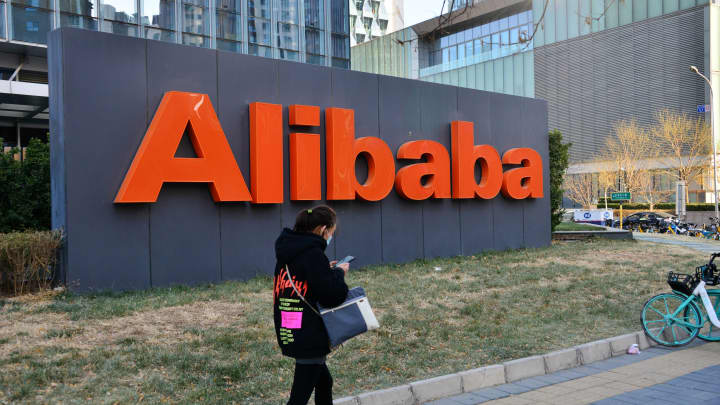Most Asian stock markets rose on Wednesday as regulators further downplayed fears of a banking crisis, while Hong Kong’s Hang Seng index rose sharply as investors cheered a major restructuring in e-commerce giant Alibaba (NYSE: BABA) Group.
The Hang Seng jumped 2.2% to an over three-week high, with Alibaba Group Holdings Ltd (HK:9988) up nearly 15% in early trade. The e-commerce firm said it plans to split its business into six separate units, each with its own leadership and scope for public listing.
Asian equities surge as bank worries subside; Alibaba bolsters the Hang Seng.

The move was seen as overly positive by investors, on hopes that it could attract lesser regulatory scrutiny, and also generate more future returns given that the six units represent Alibaba’s largest moneymakers.
Other technology stocks on Hang Seng were also caught up in the buying, with Tencent Holdings Ltd (HK:0700) and Baidu (NASDAQ: BIDU) Inc (HK:9888) up over 2% each.
Japan’s Nikkei 225 index rose 0.4%, aided by an over 5% jump in investment house SoftBank Group Corp. (TYO:9984), which owns a 13.5% stake in Alibaba.
Broader Asian stocks also advanced, as overnight comments from U.S. regulators reiterated strength in the banking system, and blamed the recent collapse of Silicon Valley Bank on mismanagement, rather than systemic risks.
As bank jitters subside, Asian markets surge; Alibaba drives up the Hang Seng
The comments, coupled with a lack of negative news from the banking sector over the past two weeks, helped ease concerns over an imminent collapse in U.S. banks. This saw investors cautiously buy into risk-heavy Asian markets.
But gains were limited by an overnight bounce in U.S. Treasury yields, as easing banking fears saw markets pricing in the potential for more policy tightening by the Federal Reserve.
Indonesian stocks led gains across Southeast Asia with a 0.8% bounce, while Australia’s ASX 200 added 0.2% after softer-than-expected inflation data furthered the case for a pause in the Reserve Bank’s rate hike cycle.
But Chinese stocks lagged their Asian peers, with the Shanghai Shenzhen CSI 300 index up 0.2%, while the Shanghai Composite fell 0.1%. Mixed economic readings from the country saw investors scale back their bets on a Chinese rebound this year, even as the country ended three years of anti-COVID lockdowns.
Focus this week is on Chinese information about businesses due on Friday. Analysts are expecting some softening in March from the prior month, as a post-COVID economic boom runs out of steam.
China’s massive export sector is grappling with weak overseas demand, while local manufacturers are also still running well below capacity.

